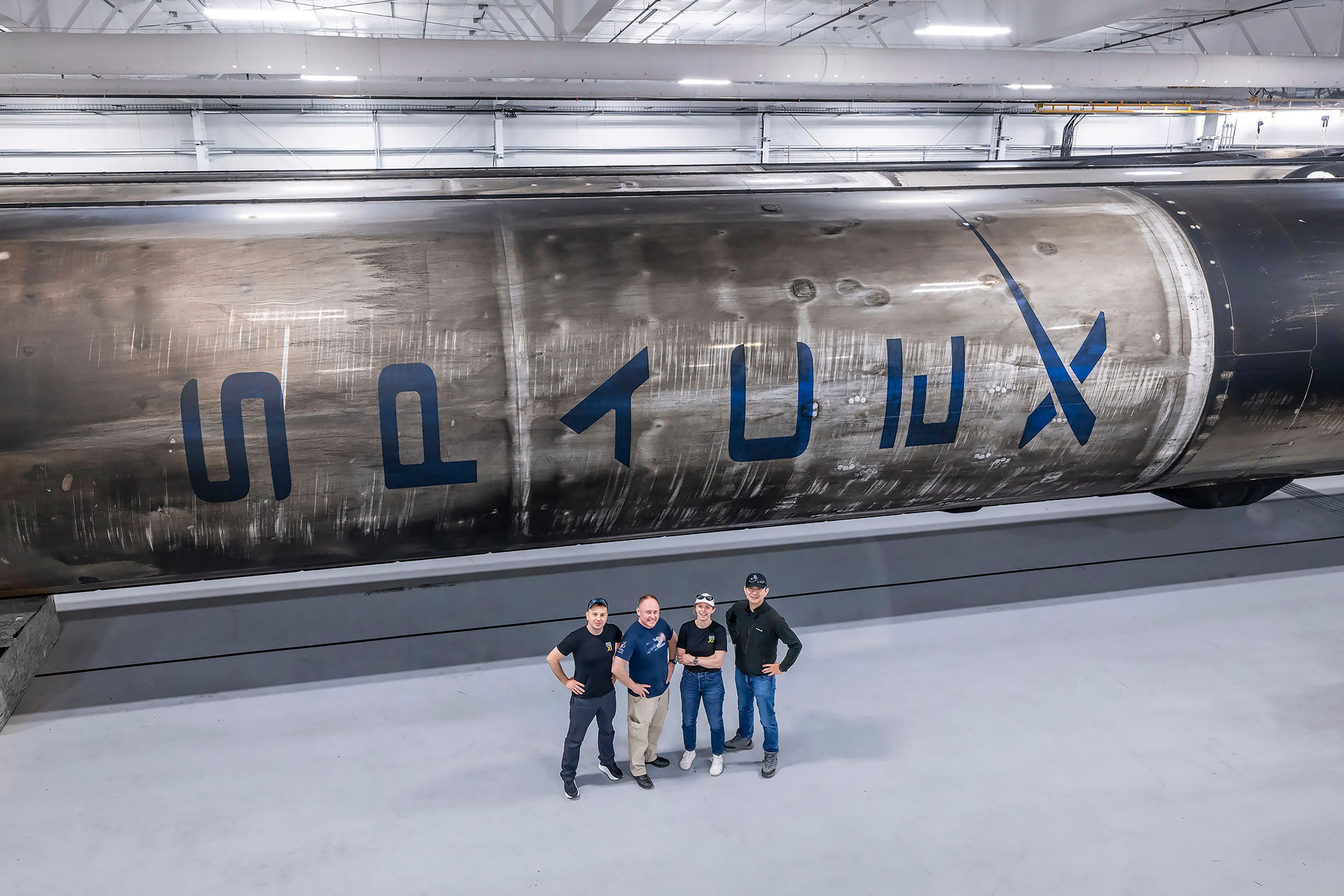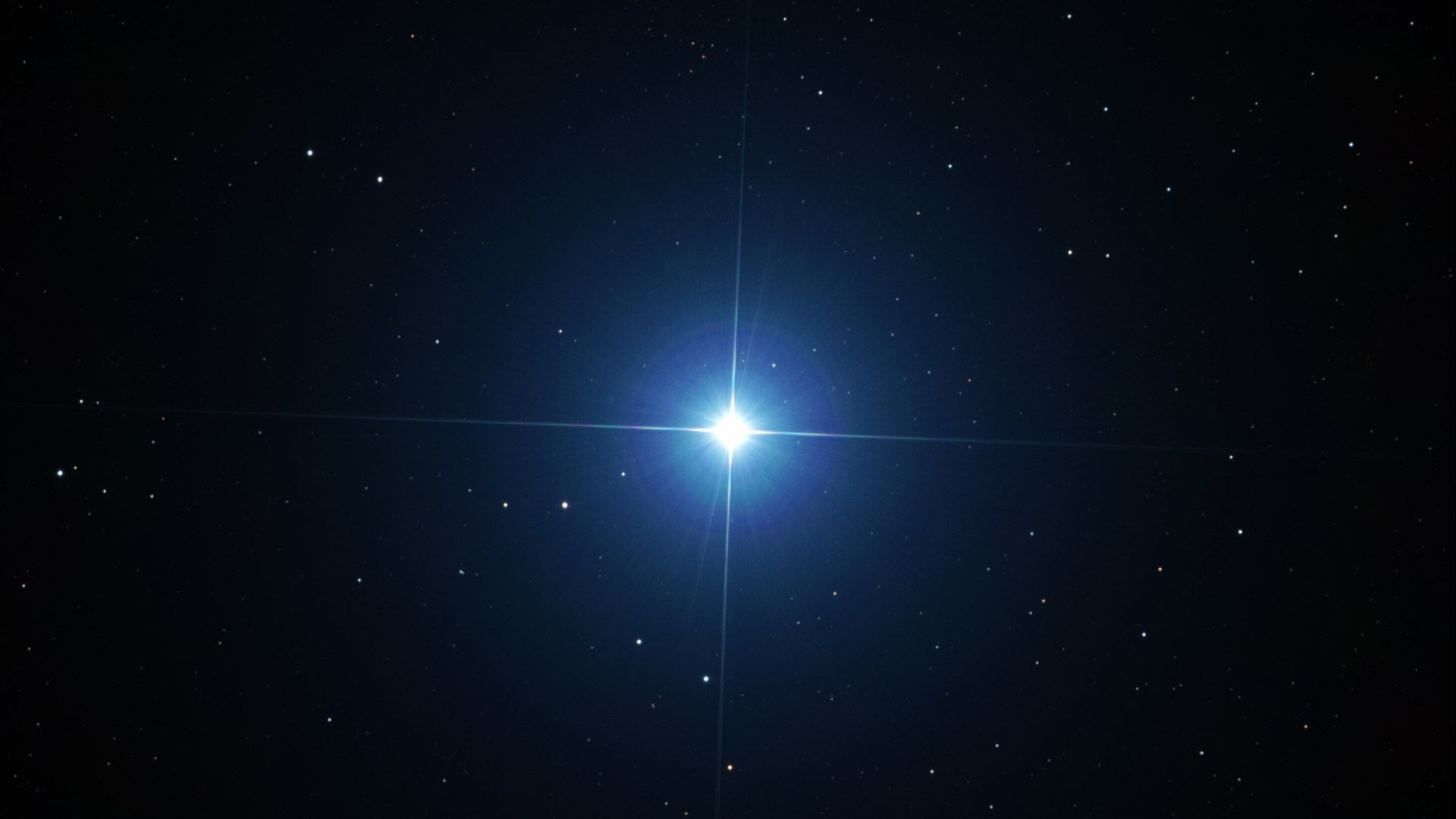Steven Beckwith: Q&A with Hubble's Biggest Booster
Last year, when NASA announced that it was canceling a long planned space shuttle mission to service the Hubble Space Telescope, there were few critics more outspoken about that decision than Steven Beckwith.
Since 1998, Beckwith has served as the director of the Space Telescope Science Institute (STSI), the Baltimore, Md.-based organization that has managed Hubble science operations for NASA since before the telescope was launched. This fall, after seven years on the job, Beckwith is stepping down.
He decided last year that his high public profile in the fight to save Hubble might make it difficult for the Association of Universities for Research in Astronomy (AURA), the non-profit organization that manages the Space Telescope Science Institute and other astronomy centers, to keep its NASA contract and win new business. Rather than stay on beyond 2005, Beckwith announced that he would be moving on.
"I was considering another extension but I felt that my public profile in this whole Hubble fight may have been a liability," for AURA in retaining its contract." Beckwith said. "I was also concerned that I had taken a very strong public position on Hubble, which I intended to continue in order to win the Hubble fight, that it might make it difficult to work with the agency afterward."
Beckwith and Hubble supporters were heartened late last year when a National Academy of Sciences committee chaired by Louis Lanzerotti urged NASA to send a space shuttle to Hubble to service the telescope and install two new instruments. The Lanzerotti committee also took a dim view of NASA's plan to service the telescope with a first-of-its-kind robotic mission, something the agency proposed after taking heat for canceling the shuttle mission. NASA said little about the committee's recommendations other than that it would do nothing to preclude a shuttle mission while it continued to work on the robotic option.
The Hubble story took another twist in early February when NASA announced that it would make no attempt to service Hubble, shifting its focus to developing a robotic mission designed to steer the telescope into the ocean once it goes dark.
Beckwith said that without servicing, Hubble science operations could come to an end as soon as 2008. But with a little luck and some ingenious operations, the telescope could be kept in service until 2010 when its batteries are expected to finally give out.
Get the Space.com Newsletter
Breaking space news, the latest updates on rocket launches, skywatching events and more!
Beckwith declined to discuss what he plans to do after leaving the institute. For now, he said, he intends to continue to speak out on behalf on Hubble and make sure that the telescope continues to churn out impressive discoveries.
Beckwith spoke recently with staff writer Brian Berger at the Space Telescope Science Institute.
Were you surprised by NASA's latest decision to forgo any Hubble servicing?
Yes. Hubble continues to produce more discoveries than any other program NASA has going right now. After the Lanzerotti committee recommended conducting a shuttle mission to service Hubble, NASA had a chance to say we are concerned about astronaut safety but now that we've had a very careful analysis of the risk it appears this is a reasonable thing to do. Why the NASA administrator chose not to do that I don't know.
Do you accept NASA's latest decision as the final word on Hubble?
No. NASA's new vision and in particular what they intend to do with Hubble is going to be part of an ongoing national debate. It is good that the White House gave NASA a new vision. It is also normal to see portions of any new vision modified in response to public reaction. For the public, Hubble is a very big deal. It should be very easy for NASA to support another servicing mission without having to change the direction of the vision and it would help the agency gain public support for the new things it wants to do.
Do you believe NASA when it says its Hubble decision was not about money?
I don't have any insight into NASA's decision making but I know that the only quantitative attempt to assess the risk of a Hubble servicing mission goes against the reasons Sean O'Keefe gave in 2004 for canceling the mission. The Lanzerotti committee said the risk of flying to Hubble is essentially no greater than flying to the station. If NASA plans to mount another 25-30 flights to the space station, it has already decided to accept an enormous risk compared to the very slight risk it takes on with a single servicing mission to Hubble.
Do you think the Lanzerotti committee might have sealed Hubble's fate by dismissing the robotic option as too risky?
The Lanzerotti committee did not close the door to a Hubble servicing mission. When NASA announced in February that it would not try to service Hubble, O'Keefe certainly seized upon the committee's observations about the risk of the robotic approach but ignored the committee's conclusion that Hubble is worth servicing and using the shuttle is the best way to do it.
Do you think the next NASA administrator will be willing to reinstate a Hubble servicing mission?
It is my hope that a new administrator will take a hard look at the Hubble question and conclude that servicing Hubble is the best thing for NASA and the nation.
If not, how much help can you hope to get from Hubble champions in Congress given that time is running out to save the telescope?
There is a great deal of give and take between NASA and the Congress. Congress can use its power of the purse to get agencies to do things it wants them to do. But frankly, this is outside of my expertise. If the new administrator is unwilling to reconsider the question, I will watch patiently to see what the Congress does and provide information about Hubble's benefits when asked.
Would it be easier to kill Hubble if the program was run entirely by NASA?
Probably. NASA has a very clear management hierarchy, so when management makes a decision it can enforce that decision without a lot of public dissent. When there is an independent institute involved engaging in advocacy, if you will, on behalf of the observatory, it can be much more difficult
As head of a NASA-funded institute, are there restrictions on how much advocacy you can do on Hubble's behalf?
There are things I can and cannot do. For example, I have never encouraged the staff here to write their local representatives. If people ask if they can sign an online petition to save Hubble, I say sure, but I can't encourage them to do that. And I want to make sure people aren't using institute time for public advocacy. On the other hand, I am knowledgeable about the Hubble program and so I am often asked by people in Congress and congressional staffers and reporters about Hubble and there it is very reasonable for me to respond to those questions and be as much of an advocate as I want.
How does Hubble's science output compare to other NASA programs?
Every year, for the past 10 years or so, Hubble has been the number one science producing mission for NASA. Hubble has produced almost 5,000 refereed articles in its lifetime, or about 600 per year. The space station, to my knowledge, has produced just 74 papers. Last year was an all time high for Hubble, with the number of published papers up 20 percent. Hubble is still very much at the height of its powers. If NASA adds the Wide Field Camera 3 and the Cosmic Origins Spectrograph, it will be even more powerful. I've seen the science planned for Hubble and its just superlative stuff.
Isn't there a big enough backlog of Hubble data to keep astronomers busy for years?
The archive is something that astronomers will find useful, but it is unlikely that there are as many discoveries hidden there as we would get from an additional year of new data. Astronomers who get time on Hubble are very smart and know how to milk their observation time for discoveries. The archive is no substitute for new measurements.
Are ground-based telescopes catching up with Hubble's capabilities?
No. That isn't even anywhere close to happening and in my opinion it will never happen. There are certain areas of astronomy, certain kinds of measurements, where ground-based telescopes are better than space telescopes. But in general, space telescopes will always have superior angular resolution and sensitivity. There's been a lot of talk about adaptive optics correcting the blurring caused by the Earth's atmosphere. That can help with infrared wavelengths over a limited field, but it does not help at all with the optical wavelengths, and I don't think anybody is even doing the research.
Ground-based telescopes also suffer from the background radiation from the atmosphere. The sky is very bright, even in the dark of night. I wasn't really in the space astronomy business before I took this job but the longer I am here the more I am convinced that space is just the way to go.
Will the James Webb Space Telescope (JWST) replace Hubble's capabilities?
Not exactly. JWST will be a wonderful observatory designed with the idea of looking at the early universe. I fully expect it will bring us much of the excitement that Hubble has brought us. But JWST lacks the short wavelength capabilities Hubble has, not just the ultraviolet but even the optical spectrum.
It lacks a very rich set of tools that have proved extraordinary for looking at the solar system, our galaxy and nearby galaxies. Because JWST isn't serviceable, it will be great for while, but then it will have to be replaced. If Hubble hadn't been designed to be serviceable, we would have gotten perhaps only three to five years of really great observations before we exhausted its capabilities.
If NASA does not service Hubble, what will that mean for STSI?
If Hubble dies before James Webb is launched, we will lose some large fraction of our workforce. It will be difficult for us to retain our experts in operations while waiting for JWST to go on line, so we would have to rebuild some of that capability just as JWST starts. But keep in mind that our JWST contract envisions a much smaller institute than we have today -- roughly half our current size. That's because JWST will be a simpler mission to operate than Hubble.
Why will JWST be simpler to operate than Hubble?
For starters, it only has three instruments and they are all envisioned to be simpler than the instruments on Hubble. And because it is not serviceable, we won't have to dedicate any staff to preparing for the next servicing mission.
It is also not in low earth orbit, which imposes many constraints on scheduling and on data calibration that we don't expect to run into with JWST out at L2 about 1.5 million kilometers away.
Low Earth orbit is a challenging environment. Because Hubble goes in and out of earth's shadow, you get temperature fluctuations. We go in and out of the south Atlantic anomaly, which varies the hit rate of cosmic rays. All of those things have to be corrected for in the subsequent data stream and it takes a lot of smart people time to think about how to do that.
Is astronomy in danger at NASA?
If you take a look at NASA's budget plans, you see that major astronomy missions have been delayed, postponed indefinitely, or, in the case of Hubble servicing, canceled outright. LISA and Constellation X were both delayed. The joint dark energy mission with the Department of Energy was postponed indefinitely, which essentially amounts to a cancellation. I worry that NASA's new vision fails to understand that this is really a golden age for astronomy and that astronomy missions are the agency's most scientifically productive programs. The vision puts a heavy emphasis on solar system exploration, which is certainly very interesting, but only one small part of exploring the universe.
Join our Space Forums to keep talking space on the latest missions, night sky and more! And if you have a news tip, correction or comment, let us know at: community@space.com.
Brian Berger is the Editor-in-Chief of SpaceNews, a bi-weekly space industry news magazine, and SpaceNews.com. He joined SpaceNews covering NASA in 1998 and was named Senior Staff Writer in 2004 before becoming Deputy Editor in 2008. Brian's reporting on NASA's 2003 Columbia space shuttle accident and received the Communications Award from the National Space Club Huntsville Chapter in 2019. Brian received a bachelor's degree in magazine production and editing from Ohio University's E.W. Scripps School of Journalism.









